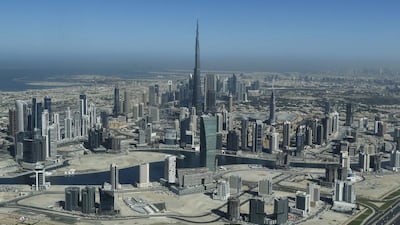Property brokers in Dubai are reporting a rush in sales from Qatari investors attempting to get their assets out of the UAE before the Monday deadline to leave the country.
Brokers say that Qataris in the UAE are selling property portfolios worth millions of dirhams at steep discounts as they rush to liquidate their assets and leave.
“It is an extremely difficult time for many of our Qatari clients,” said Mario Volpi, the chief sales officer at Kensington Exclusive Properties. “We had one guy who managed to sell everything – some town houses in JVC, a plot of land in Dubailand, some commercial units in the Marina and a full building.
“He managed to sell the lot in just a couple of days at probably around 20 per cent below market price, but we have at least two other clients who are trying to sell and can’t,” Mr Volpi said.
On June 5, amid an escalating political dispute, Qatari citizens in the UAE were given 14 days to leave the UAE, while the Government said that Qatari citizens outside the UAE would not be allowed to enter or transit the country.
“We are currently working with a number of Qatari sellers and landlords. As a result of the current situation, some of our clients have either reduced their asking prices or have agreed to a recommended marketing strategy which is more attractive to tenants or buyers,” said Nick Grassick, the managing director of Dubai-based broker PH Real Estate.
“We have seen a lot of Qataris selling up,” another Dubai-based broker said.
“Those with smaller units, which can be sold fast, have managed to sell at between 5 and 10 per cent below market prices. But of course the bigger assets are not that liquid.”
“One Qatari investor sent out a list of 13 properties and managed to sell seven of them the same day,” he said. “One property was sold at 10 to 15 per cent below par in two hours.”
The number of Qataris who own property in Dubai is not a significant proportion of the market.
According to the Dubai Land Department, in 2015 Qataris invested Dh2.8 billion in Dubai property through 799 transactions, comprising 2 per cent of the total Dh135bn transacted that year. Last year, nationals from Qatar and Kuwait combined invested nearly Dh2bn in Dubai property – 0.78 per cent of the total transacted, with Qataris accounting for 1,006 transactions.
“At this time, we can confirm that the current geopolitical situation has not resulted in us seeing any instructions to sell or lease real luxury estate,” said Jason Hayes, the Luxhabitat managing director.
For Qatari citizens who are not currently in the UAE and who wish to sell, the logistics of signing a deal are complicated. Without being allowed into the country, sellers would have to sign a power of attorney to enable a non-Qatari to sell property on their behalf.
However, UAE ministries are unlikely to attest documents from Qataris at present, making it almost impossible for them to sell. Property brokers in London anticipated an increase in demand from Qataris keen to move their cash far away from the Middle East.
“Thus far, a week into the diplomatic crisis, there has been no sudden surge in Qatari requirements,” said Faisal Durrani, the head of research at Cluttons.
“The political rift unfolding in the Arabian Gulf is unprecedented and while the long-term political ramifications are too early to assess, London’s property market may emerge as a beneficiary.
“While we have seen political spats in recent years, the deepening crisis between various Arab states and Qatar has the potential to dramatically cause a seismic shift in property investment capital flows emanating from Qatar, both at an individual and sovereign level. Any impact is, however, likely to be a slow burn, rather than an overnight change,” Mr Durrani said.
business@thenational.ae
Follow The National's Business section on Twitter

